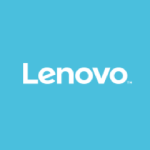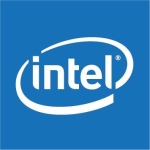Dell PowerEdge Rack Servers have demonstrably bolstered the operational consistency and reliability of our applications, thereby enhancing the user experience for our esteemed clientele.
Given our exclusive reliance on Dell servers, conducting a direct comparison of energy consumption across different vendors proves to be a rather intricate endeavor. Nevertheless, I am confident that the power usage falls within a range deemed satisfactory for our operational requirements.
We leverage these server systems for an extended period of time, a practice that demonstrably contributes favorably to the principles of environmental sustainability.
Dell PowerEdge servers have demonstrably curtailed the incidence of production downtime, the precise extent of which remains challenging to quantify. Nevertheless, a marked decline in service outages and a concomitant upswing in availability periods are irrefutable indicators of this positive development.
The OpenManage Console serves as a streamlined nexus, consolidating a multitude of functionalities within a singular, intuitive interface. This holistic design fosters an enhanced level of productivity amongst IT personnel by eliminating the need to navigate through a maze of disparate applications.
Dell PowerEdge servers have contributed to the overall flexibility of our operations. This translates to relatively short delivery times, which is a significant advantage. We can quickly acquire new servers without facing lengthy lead times.
I would give Dell PowerEdge Rack Servers a rating of nine out of ten. While they offer excellent flexibility, I find that it can be limited in certain situations. Users are required to commit to specific configurations and cannot always choose every desired processor or combination of components. Additionally, there are sometimes unclear dependencies between components, requiring the use of specific minimum amounts of certain resources. These limitations prevent me from giving them a perfect score.
Our infrastructure is optimized for stability rather than raw processing power. While our servers may not boast the most formidable specifications, they consistently deliver reliable performance within their established parameters.
Foreign Language: (German)
Verbessert die betriebliche Konsistenz und Zuverlässigkeit unserer Applikationen
Was ist unser Hauptanwendungsfall?
Zur Gewährleistung des anhaltenden Erfolgs unserer Kunden nutzen wir die robusten Fähigkeiten der Dell PowerEdge Rack Server innerhalb der Grenzen unseres Datenzentrums.
Die unkomplizierte Implementierung von Firmware-Updates auf Servern kann sich oft als schwieriges Unterfangen erweisen. Da wir diese schwierige Herausforderung erkannt haben, haben wir uns für die Integration von Dell PowerEdge Rack Servern in unsere Infrastruktur entschieden, um einen rationalisierten und effizienteren Prozess zu ermöglichen.
Wie hat es meiner Organisation geholfen?
Dell PowerEdge Rack Server haben nachweislich die betriebliche Konsistenz und Zuverlässigkeit unserer Anwendungen verbessert und damit die Benutzerfreundlichkeit für unsere hochgeschätzte Kundschaft erhöht.
Da wir uns ausschließlich auf Dell-Server verlassen, ist ein direkter Vergleich des Energieverbrauchs verschiedener Anbieter ein ziemlich kompliziertes Unterfangen. Dennoch bin ich zuversichtlich, dass der Stromverbrauch in einem Bereich liegt, der für unsere betrieblichen Anforderungen zufriedenstellend ist.
Wir nutzen diese Serversysteme über einen längeren Zeitraum, was nachweisbar einen positiven Einfluss auf die Prinzipien der ökologischen Nachhaltigkeit hat.
Dell PowerEdge-Server haben nachweislich die Zahl der Produktionsausfälle verringert, wobei es schwierig ist, das genaue Ausmaß zu quantifizieren. Ein deutlicher Rückgang der Serviceausfälle und ein gleichzeitiger Anstieg der Verfügbarkeitszeiten sind jedoch unwiderlegbare Indikatoren für diese positive Entwicklung.
Die OpenManage-Konsole dient als optimierter Mittelpunkt, der zahlreiche Funktionen in einer einzigen, intuitiven Benutzeroberfläche zusammenfasst. Dieses ganzheitliche Design fördert die Produktivität des IT-Personals, da es sich nicht mehr durch ein Chaos von unterschiedlichen Anwendungen bewegen muss.
Die Dell PowerEdge-Server haben zur allgemeinen Flexibilität unseres Betriebs beigetragen. Dies führt zu relativ kurzen Lieferzeiten, was ein großer Vorteil ist. Wir können schnell neue Server erwerben, ohne lange Vorlaufzeiten einzuhalten.
Was ist am wertvollsten?
Was mich an den PowerEdge-Rack-Servern von Dell wirklich beeindruckt, ist der unermüdliche Einsatz für den Kundenservice, der während des gesamten Produktlebenszyklus hervorragende Unterstützung bietet. Dieser beispiellose Support erstreckt sich über einen langen Zeitraum und stellt sicher, dass unsere Server auch in den kommenden Jahren zuverlässig und sicher bleiben. Darüber hinaus zeigt sich die außergewöhnliche Qualität dieser Server in ihrer Technik und robusten Bauweise, die selbst bei den anspruchsvollsten Arbeitsbelastungen Spitzenleistungen und unerschütterliche Stabilität garantieren.
Was muss verbessert werden?
Ich wünsche mir mehr Flexibilität bei der Maschinenmontage. Die derzeitigen Zwänge, die die Konfigurationen auf einige wenige beschränken, lassen oft eine inhärente Rationalität vermissen. Diese Starrheit erschwert den Bau von Servern, die genau auf die spezifischen Anforderungen abgestimmt sind. Idealerweise sollten wir ein System anstreben, das die maßgeschneiderte Anpassung von Servern ermöglicht, um eine perfekte Ausrichtung auf jeden einzelnen Bedarf zu gewährleisten.
Wie lange nutze ich die Lösung schon?
Ich benutze Dell PowerEdge Rack Server seit 15 Jahren.
Was halte ich von der Stabilität der Lösung?
Obwohl Dell PowerEdge Rack Server im Allgemeinen einen hervorragenden Ruf für ihre Zuverlässigkeit und Leistung genießen, hatten wir kürzlich ein Problem mit einem unserer Geräte. Glücklicherweise wurde umgehend ein spezieller Support-Fall eingerichtet, um das Problem zu beheben. Es stellte sich heraus, dass es sich um ein fehlerhaftes Bauteil handelte, das schnell ausgetauscht wurde, und das Gerät lief bald wieder einwandfrei. Alles in allem haben wir mit diesen Servern durchweg positive Erfahrungen gemacht, wobei dieser einmalige Vorfall nur ein kleines Hindernis darstellte.
Was denke ich über die Skalierbarkeit der Lösung?
Die Server werden zum Zeitpunkt der Annahme mit ihren wichtigsten Hardwarekomponenten ausgestattet. In den meisten Fällen ist eine weitere Erweiterung nicht besonders rationell, obwohl es in Ausnahmefällen möglich ist, zusätzlichen Speicher oder Speichergeräte hinzuzufügen. Während sich dieser Ansatz im Allgemeinen als akzeptabel erweist, kann er allerdings in Fällen, in denen die Server nicht mit dem Potenzial für zukünftige Erweiterungen ausgestattet wurden, zu Problemen führen. Wenn ein Server beispielsweise nur mit einem einzigen Prozessor ausgestattet ist, ist die Installation eines zweiten Prozessors zu einem späteren Zeitpunkt nicht mehr möglich. Das mag zwar suboptimal erscheinen, hat aber den Vorteil, dass es kostengünstig ist. Schließlich muss nicht die gesamte Infrastruktur aufgebaut werden, wenn nur ein Teil davon genutzt werden soll.
Wie sind Kundenservice und Support?
Während früher die technische Unterstützung viel zu wünschen übrig ließ, da nur selten Techniker entsandt wurden und die Lösung des Problems oft frustrierend in unseren eigenen Händen lag, indem wir lediglich Teile oder sonstiges Material verschicken mussten, hat sich ein bemerkenswerter Wechsel vollzogen. Die gegenwärtige Lage des Dell-Supports steht in krassem Gegensatz dazu. Sie ist gekennzeichnet durch das prompte Eingreifen von Technikern, die mit den erforderlichen Materialien ausgestattet sind, oder durch deren ausdrückliche Vorablieferung und ein nachweislich hohes Niveau des laufenden Supports für die Maschinen, das selbst unsere anspruchsvollsten Erwartungen übertrifft.
Wie bewerten Sie den Kundenservice und -support?
Positiv
Welche Lösung habe ich vorher verwendet und warum habe ich gewechselt?
Früher beruhte unsere Serverinfrastruktur auf einem Patchwork von Maschinen, die aus verschiedenen Komponenten und Spezifikationen zusammengeschustert wurden. Diese Lösungen waren zwar für sich genommen sehr gut, aber in Bezug auf Zuverlässigkeit und Konsistenz oft unzureichend. Auf der Suche nach einem robusteren und standardisierten Ansatz wechselten wir zu Dell PowerEdge Rack-Servern, die durch ihren guten Ruf in Bezug auf Qualität und umfassende Garantieprogramme überzeugen konnten.
Wie war die Ersteinrichtung?
Die Ersteinrichtung verlief gelegentlich problemlos, aber wir sind auch auf Fälle gestoßen, in denen die Maschinen Schwierigkeiten verursachten, die schwer zu lokalisieren waren. In den meisten Fällen ist das Ergebnis positiv, aber nicht durchgängig.
Angesichts unserer begrenzten IT-Infrastruktur haben wir uns für einen sorgfältigen, praktischen Ansatz bei der Serverbereitstellung entschieden, indem wir jeden Server manuell an seinem eigenen Platz installiert haben.
Wie sieht es mit dem Implementierungsteam aus?
Am Anfang fehlte uns bei der Implementierung die externe Unterstützung. Jetzt haben wir jedoch LSK Storage, einen Value-Added Reseller, an Bord geholt, um eine breitere Palette von Aufgaben zu beaufsichtigen, da wir nicht mehr die gesamte Last selbst übernehmen müssen. Die Zusammenarbeit mit diesem Unternehmen war außerordentlich positiv und hat unsere Erwartungen sogar noch übertroffen. Eine weitere Zusammenarbeit käme nicht in Frage, wenn ihre Leistungen nicht so hervorragend wären.
Welche Erfahrungen habe ich mit den Preisen, den Einrichtungskosten und der Lizenzierung gemacht?
Die Preisgestaltung der Dell PowerEdge Rack Server ist ein potenzieller Streitpunkt für preisbewusste Kunden, da sie strategisch besser positioniert sein könnten, um auf dem größeren Markt zu bestehen. Auch der Grad der Konfigurierbarkeit, den diese Serverlösungen bieten, sollte genauer untersucht werden, da er nicht immer den genauen Anforderungen jedes einzelnen Benutzers oder Unternehmens entspricht.
Welche anderen Lösungen habe ich bewertet?
Während unseres Auswahlverfahrens haben wir verschiedene Serverlösungen von mehreren Herstellern sorgfältig geprüft. Letztendlich hat sich Dell als Spitzenreiter herauskristallisiert, da das Unternehmen sich konsequent für eine langfristige Produktverfügbarkeit einsetzt, um die nachhaltige Rentabilität und Stabilität unserer IT-Infrastruktur zu gewährleisten.
Welche anderen Ratschläge kann ich geben?
Ich würde den Dell PowerEdge Rack-Servern eine Bewertung mit neun von zehn Punkten geben. Sie bieten zwar eine ausgezeichnete Flexibilität, aber ich finde, dass diese in bestimmten Situationen begrenzt sein kann. Die Benutzer müssen sich auf bestimmte Konfigurationen festlegen und können nicht immer jeden gewünschten Prozessor oder jede Kombination von Komponenten auswählen. Außerdem gibt es manchmal unklare Abhängigkeiten zwischen Komponenten, die den Einsatz bestimmter Mindestmengen bestimmter Ressourcen erfordern. Diese Einschränkungen hindern mich daran, ihnen eine perfekte Note zu geben.
Unsere Infrastruktur ist eher auf Stabilität als auf reine Rechenleistung optimiert. Auch wenn unsere Server nicht die beeindruckendsten Spezifikationen aufweisen, liefern sie innerhalb der festgelegten Rahmenbedingungen stets eine zuverlässige Leistung.
Welches Modell nutzen Sie für die Entwicklung dieser Lösung?
Im Hause.












